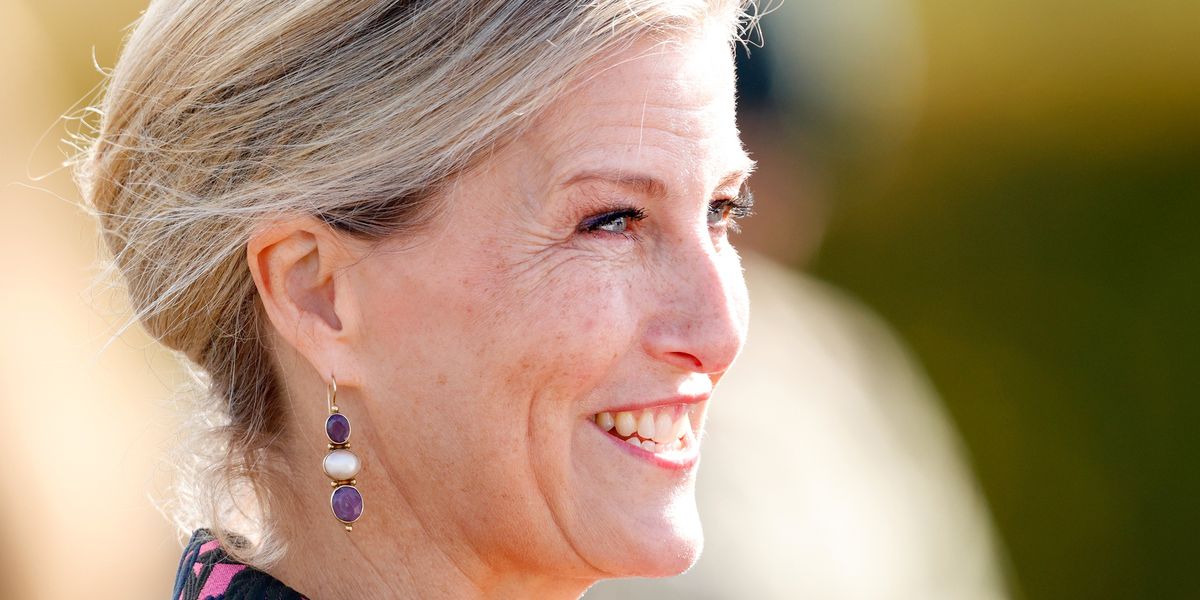The Duchess of Edinburgh has made history as the first member of the Royal Family to officially visit Chad.
Sophie’s three-day trip, from October 12th to 14th focused on highlighting the impact of the Sudan conflict on women and girls.
The visit, requested by the Foreign, Commonwealth and Development Office, aimed to draw attention to the escalating humanitarian crisis in the region.
As a champion of the Women, Peace and Security Agenda and supporter of the UK’s Preventing Sexual Violence in Conflict Initiative, the Duchess bore witness to the conflict’s devastating effects.
The Duchess of Edinburgh has made history as the first member of the Royal Family to officially visit Chad.
Getty
The ongoing crisis has forced nearly 11 million people to flee, with over 820,000 refugees and returnees seeking safety in Chad.
During her visit to Adré, a town just 400 metres from the Sudan border, the Duchess witnessed the ongoing refugee crisis firsthand. The area currently receives approximately 400 new arrivals daily, with peaks of up to 1,000.
At the border registration point, Her Royal Highness met with humanitarian workers from various organisations, including UNICEF, UNHCR, and Médecins Sans Frontières.
These dedicated professionals briefed the Duchess on their crucial roles in supporting, registering, and relocating refugees fleeing the conflict.
Sophie’s three-day trip, from October 12th to 14th focused on highlighting the impact of the Sudan conflict on women and girls.
REUTERS
The Duchess also took time to meet with refugees, particularly women and children, who had recently escaped the violence in Sudan.
The Duchess visited the newly established Integrated Multisectoral Services Centre at Adré District Hospital.
This UNICEF-supported facility focuses on providing comprehensive care to survivors of gender-based violence, including conflict-related sexual violence.
Sophie toured the centre and engaged in discussions with hospital staff, service providers, and survivors.
These conversations shed light on the extensive needs of affected communities and the collaborative efforts of various agencies to support them.
Sophie toured the centre and engaged in discussions with hospital staff, service providers, and survivors.
PA
The Duchess also met with representatives from grassroots women’s rights organisations, including the Strategic Initiative for Women in the Horn of Africa Network and Darfur Women Action Group, to learn about their vital work in supporting affected communities.
Before departing Adré, the Duchess visited mobile protection units operated by Plan International and funded by the UK.
These units provide safe learning spaces and essential child protection services for children of all ages arriving in Adré.
Sophie met with young teenagers who had recently arrived in Chad. She listened to their experiences and learned how the project supports newly arrived children.
In N’Djamena, the capital of Chad, the Duchess of Edinburgh was received by Prime Minister Mr Allamaye Halina. She also held meetings with Foreign Minister Abderaman Koulamallah and Minister for Women, Protection of Early Childhood and National Solidarity, Amina Priscille Longoh.
Sophie engaged with local and regional civil society organisations, UN agencies, and women-led groups. These discussions focused on advancing women’s empowerment and delivering support for women in Chad.

